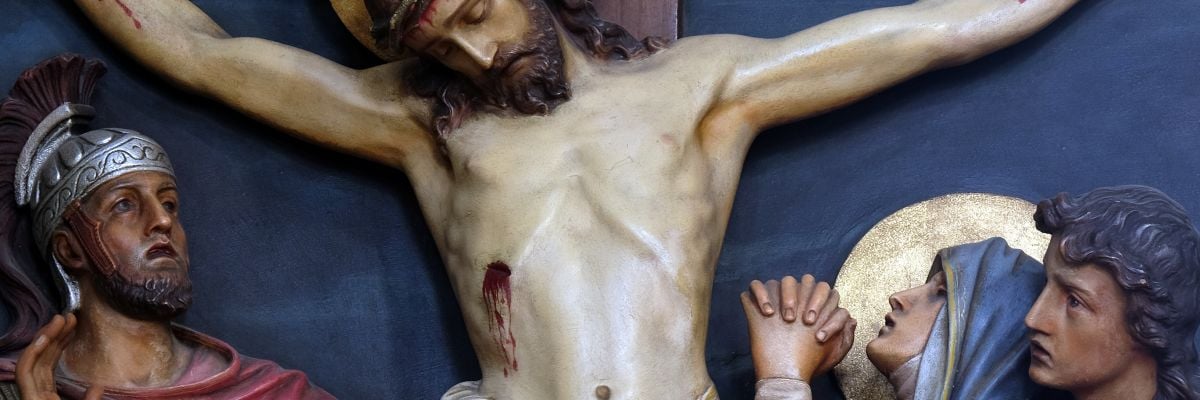
Question:
Answer:
On the cross, Jesus cries out, “‘Eli, Eli, la′ma sabach-tha′ni?’ that is, “My God, my God, why hast thou forsaken me?” (Matthew 27:46). This is also the first line from Psalm 22. And yet that same Psalm concludes in triumph (see verses 22-28), illustrating that Jesus wasn’t humanly despairing on the cross and that his Father hadn’t abandoned him. Indeed, shortly after these words and just before he dies, Jesus also cries out to the Father, “Into thine hands I commit my spirit” (Luke 23:46), quoting Psalm 31:5.
So why didn’t his disciples understand all of this? We learn in the Gospels that Jesus tells his disciples that he must suffer and die in Jerusalem and be raised on the third day (Matt. 16:21). Then he tells Peter, James, and John not to disclose the miracle of his Transfiguration until after he rises from the dead (Matt. 17:9). At this point, we also learn that the three disciples discuss what it could mean to rise from the dead (Mark 9:9).
While we, benefiting from 2,000 years of Church teaching, can more easily infer that Jesus is referencing such Old Testament prophecies as the “Suffering Servant” of Isaiah 52-53 (see Luke 22:37), this was not as easy for his first disciples. Remember that first Easter Sunday Jesus had to explain those prophecies in detail to aid the two disciples on the road to Emmaus to first understand their meaning—and this as a preparation for their realizing that he had actually fulfilled those prophecies earlier that day (Luke 24:13-35).
We see too that Peter and “the beloved disciple” (John) begin to “get it” only when they enter the empty tomb that first Easter Sunday (John 20:6-10, Luke 24:11-12). Further, in fairness to his first disciples, Jesus didn’t fulfill Psalm 22 in its totality until Easter Sunday. Up until that point, from their human perspective, things weren’t looking too good.
Psalm 22 is worth reading in whole for our own times of trial and also to see other connections with Christ’s paschal sacrifice, including the casting of lots for his garments (Psalms 22:18, John 19:24).



